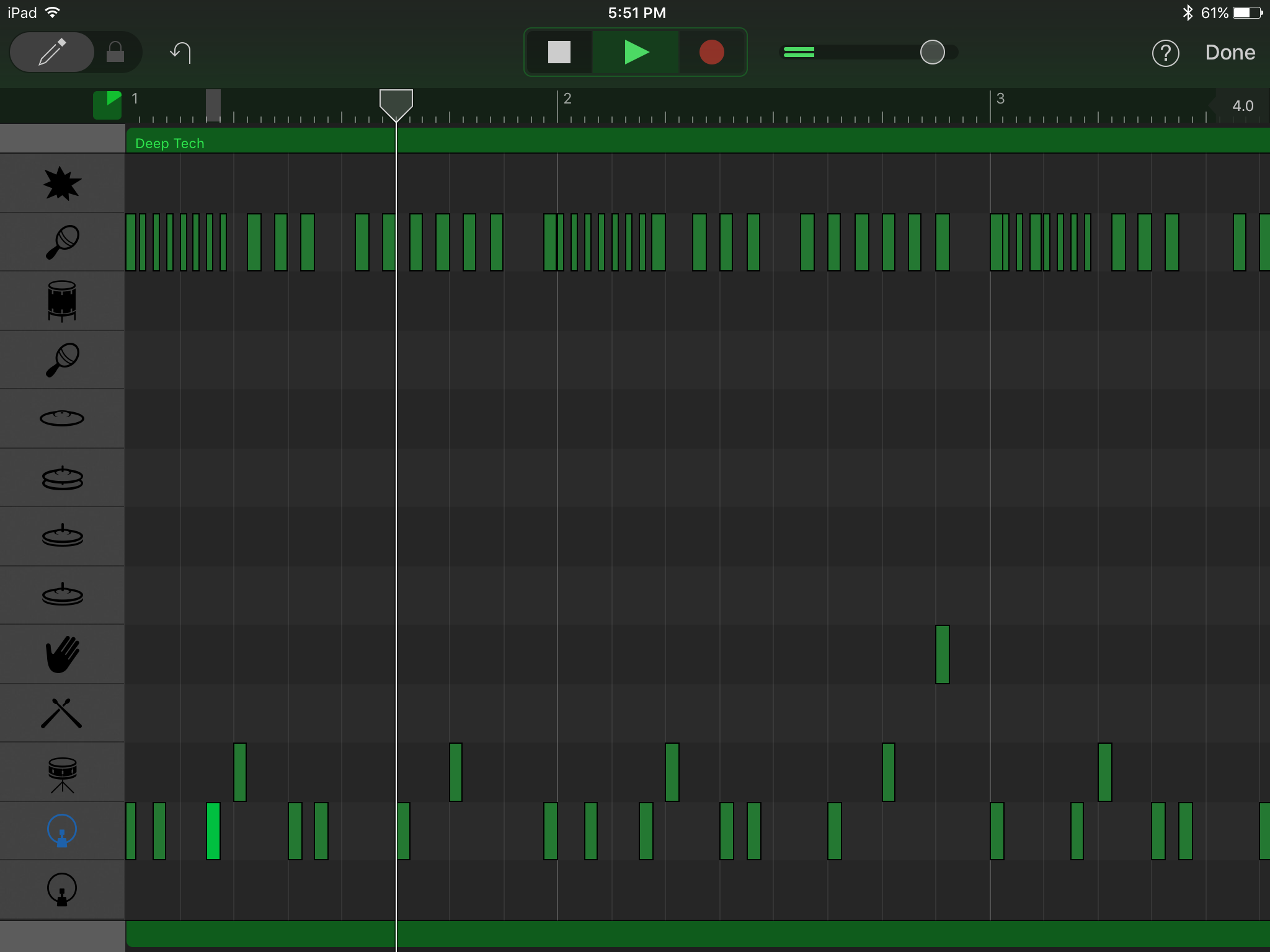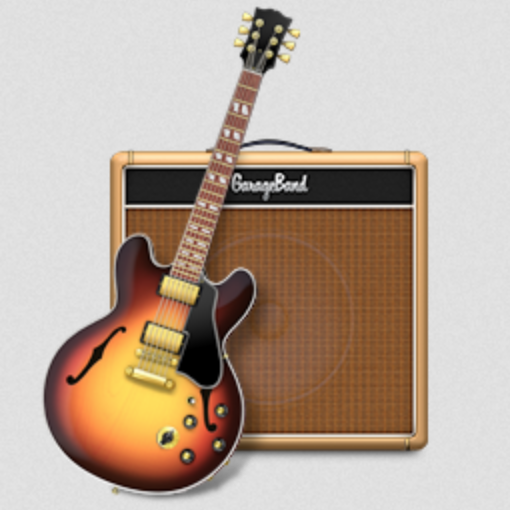Export Midi File Garageband Ipad
- Can You Export Midi Files From Garageband
- Can You Export Garageband As Midi
- Export Midi File Garageband Ipad 2
- Export Midi File Garageband Ipad
- Export Midi File Garageband Ipad Download

Tools for converting Garageband (Mac OS X) files to MIDI files
Import audio and MIDI files into GarageBand for iPad. You can import audio and MIDI files from your computer and use them in your GarageBand song. You can add: Audio files to an existing Audio Recorder or Amp track. MIDI files to an existing Keyboard or Drums track. Audio or MIDI files to new tracks. Audio or MIDI files to your song from iCloud Drive or your iPad using the Files app. Oct 09, 2019 Export to a disk 1) Click Share Export to Disk from the menu bar. 2) Adjust the name, tags, and location for your song. 3) Select the file type from AAC, MP3, AIFF, or WAVE and optionally choose a file quality.

Can You Export Midi Files From Garageband
SIGNUP BONUS OFFER!Call to work one on one! 1.855.553.7205in this tutorial, OBEDIA tutor Brian shows you how to export your. Download his GB2MIDI Apple droplet script from his site: MIDI-Export in Apples Garageband. Here’s the direct download: GB2MIDI.ZIP source: Scott Troyer: Export MIDI from GarageBand Kobbe also created an experimental JavaScript-based version of the GB2MIDI app which works directly in your browser. This is great because, if the application ever.
Instructions:In order to export MIDI from Garageband, you first need to create a loop from the MIDI segment (join segments for a whole track) via drag&drop into the loop area (up to 45 measures long, otherwise you the menu edit->add to loop library). You can find the resulting loop file in the folder /User/Library/Audio/Apple Loops/User Loops/SingleFiles/ with the .aif suffix.(Please note that this folder is only created after you created your first loops and can be tricky to navigate to in the Finder.)
Export Midi File Garageband Ipad Pro
You can either use a Hex-Editor to cut out the part between “MTrk” and “CHS” and save as a .mid file or download and use the GB2MIDI 'app' (written in AppleScript) for Mac OS X in this repository. Either drag & drop onto the icon, or run the script and select files. The resulting files will be saved with the same name but a .mid suffix. The original AppleScript tool was published on my website http://www.larskobbe.de/midi-export-in-apples-garageband

Feb 29, 2020 TeamViewer 15.2.2756.0 Crack Download Full Version for Mac & Windows 2020. TeamViewer 15 Full Crack Version is a dedicated software application to access any computer remotely. Many times, we have to remotely connect with another computer. Download teamviewer portable for mac. TeamViewer Host is used for 24/7 access to remote computers, which makes it an ideal solution for uses such as remote monitoring, server maintenance, or connecting to a PC or Mac in the office or at home. Install TeamViewer Host on an unlimited number of computers and devices. As a licensed user, you have access to them all! TeamViewer Portable. TeamViewer Portable generally comprises all the features of the full version of TeamViewer without the need to install anything. Instead, TeamViewer portable runs directly from a USB stick or a CD — TeamViewer Portable is the perfect solution. Teamviewer portable free download - TeamViewer, Portable VLC, Apple iTunes (Classic), and many more programs. TeamViewer Downloads: 1,654,432. Edit the digital audio files on your Mac right.
I have also created a (experimental) JavaScript-based version of the GB2MIDI app which works directly in your browser.
This software is freeware and must be considered beta status. Use on your own risk, even though I believe it is perfectly safe to use.
Can You Export Garageband As Midi
GarageBand User Guide for iPad
You can import audio and MIDI files from your computer and use them in your GarageBand song. You can add:
Export Midi File Garageband Ipad 2
Export Midi From Garageband Ipad
Audio files to an existing Audio Recorder or Amp track
MIDI files to an existing Keyboard or Drums track
Audio or MIDI files to new tracks
Audio or MIDI files to your song from iCloud Drive or your iPad using the Files app
When you import an audio file, it’s converted to a 44.1 kHz sample rate, 16-bit depth format if the original format is different. Imported audio files don’t follow tempo changes you make in GarageBand.
When you import a multitrack MIDI file, GarageBand creates a new Keyboard track for each track in the MIDI file. The total number of resulting tracks cannot exceed 32 tracks. You cannot add multitrack MIDI files to cells in Live Loops.
Import Midi Garageband Ios

Import audio and MIDI files from your computer
On your computer, add the audio or MIDI files you want to import to the GarageBand File Sharing area in the Finder.
In GarageBand on your iPad, set the current song section to Automatic to import the entire audio or MIDI file; otherwise, only the portion of the file that fits the current song section is imported.
After importing the audio or MIDI file, you can make the song section longer, then resize the region so more of it plays.
Tap the Tracks View button to open Tracks view, then tap the Loop Browser button in the control bar.
A message appears asking if you want to move the audio or MIDI files to the GarageBand File Transfer folder.
Tap Move Files.
The files are moved to the GarageBand File Transfer folder.
To preview an audio file, tap it in the list. You can control the preview volume with the slider at the bottom of the list.
Drag an audio or MIDI file from the list to Tracks view. Align the left edge of the file with the bar or beat (on the ruler) where you want it to start playing.
A new region created from the audio or MIDI file is trimmed to the end of the current song section, unless the current song section is set to Automatic. You can make the song section longer or slow down the tempo, then resize the region so that more of it plays.
Export Midi File Garageband Ipad
Import audio and MIDI files with the Files app
Export Midi File Garageband Ipad Download
Set the current song section to Automatic to import the entire audio or MIDI file; otherwise, only the portion of the file that fits the current song section is imported.
After importing the file, you can make the song section longer, then resize the region so that more of it plays.
Tap the Tracks View button to open Tracks view, tap the Loop Browser button in the control bar, then tap Files.
Tap “Browse items from the Files app,” then locate and tap an audio or MIDI file to import it.
Osx Uninstaller is a lightweight software specializing in removing apps on Mac OS X. Here you can have an intuitive sense of how efficient it is. Got problems in Tuxera NTFS removal? Tuxera ntfs 2016. 1. dmg. In this post we will provide effective solutions to solve Tuxera NTFS uninstall issues.Take a few Click to Uninstall Tuxera NTFSBefore introducing the conventional removal methods, we would like to introduce a handy yet powerful tool to help you easily uninstall Tuxera NTFS within a few clicks. Any unneeded, problematic or malicious Mac apps can be easily uninstalled without leaving a trace behind.
To preview an audio file, tap it in the list. You can control the preview volume with the slider at the bottom of the list.
Drag an audio or MIDI file from the list to Tracks view. Align the left edge of the file with the bar or beat (on the ruler) where you want it to start playing.
A new region created from the audio or MIDI file is trimmed to the end of the current song section, unless the current song section is set to Automatic. You can make the song section longer or slow down the tempo, then resize the region so that more of it plays.
Import audio and MIDI files using Slide Over
How To Save Garageband As Midi File
Set the current song section to Automatic to import the entire audio or MIDI file; otherwise, only the portion of the file that fits the current song section is imported.
After importing the file, you can make the song section longer, then resize the region so that more of it plays.
Swipe up twice from the bottom edge of the screen.
The Dock appears.
In the Dock, touch and hold the Files app, drag it towards the upper-right corner of the screen, then let go.
A Slide Over window opens.
Locate the audio or MIDI file you want to import. If the file is in iCloud Drive, tap the Download button to download it before importing.
Touch and hold the file, then drag it from the Slide Over window to Tracks view. Align the left edge of the file with the bar or beat (on the ruler) where you want it to start playing.
A new region created from the audio or MIDI file is trimmed to the end of the current song section, unless the current song section is set to Automatic. You can make the song section longer or slow down the tempo, then resize the region so that more of it plays.